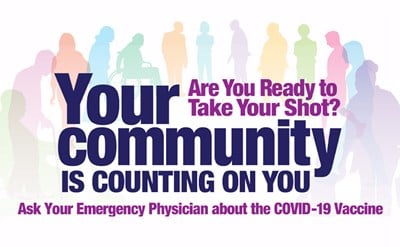WASHINGTON, D.C.—The American College of Emergency Physicians (ACEP), American College of Radiology® (ACR®) and American Society of Anesthesiologists (ASA) support a new Texas Medical Association (TMA) suit filed January 17, 2023, stating that key aspects of the federal government’s Surprise Billing interim final rule (IFR) are badly flawed, imposing serious financial pressures on all physicians and resulting in small, independent physician groups, in particular, needing to consolidate or close their practices; thereby causing patients to lose access to care, particularly in underserved areas.
ACEP, ACR and ASA filed a joint amicus brief with the Texas court in support of TMA on January 31.
In their joint amicus brief, the medical societies contend that the July 2021 IFR’s methodology for calculating the Qualified Payment Amount (QPA) artificially deflates the QPA by (1) establishing each contracted rate as a single data point, (2) excluding incentive-based and retrospective payments, (3) including rates for physicians in different specialties, and (4) allowing third-party administrators to determine the QPA based on contracted rates recognized by all self-insured group health plans administered by the third-party administrator. This distorted calculation results in a QPA amount that is not reflective of the fair market value of items and services furnished by out-of-network physicians in the marketplace. The faulty method for calculating the QPA undermines the ability of physician groups and facilities to obtain adequate payment for out-of-network items and services, artificially deflating the insurer-calculated payment. Further, the inaccurately calculated QPA compounds the defects of the biased IDR process under the August final rule, which favors the QPA and empowers insurers to significantly reduce their in-network rates or terminate in-network agreements altogether.
The brief also notes that the IFR hinders physicians and facilities from engaging in fair contracting negotiations with insurers, which could result in more physicians and facilities being forced out-of-network, threatens their ability to operate, and may result in patients losing access to in-network care.
The Texas case does not in any way impact or undermine the important patient protections included in the No Surprises Act, which ACEP, ACR and ASA advocated strongly for and continue to fully support, nor does it raise patient out-of-pocket costs.
###
About the American College of Radiology The American College of Radiology (ACR), founded in 1924, is a professional medical society dedicated to serving patients and society by empowering radiology professionals to advance the practice, science and professions of radiological care.
About the American Society of Anesthesiologists Founded in 1905, the American Society of Anesthesiologists (ASA) is an educational, research and scientific society with more than 56,000 members organized to raise and maintain the standards of the medical practice of anesthesiology. ASA is committed to ensuring physician anesthesiologists evaluate and supervise the medical care of patients before, during and after surgery to provide the highest quality and safest care every patient deserves. For more information on the field of anesthesiology, visit the American Society of Anesthesiologists online at asahq.org. To learn more about the role physician anesthesiologists play in ensuring patient safety, visit asahq.org/madeforthismoment. Like ASA on Facebook and follow ASALifeline on Twitter.
 American College of Emergency Physicians
American College of Emergency Physicians







